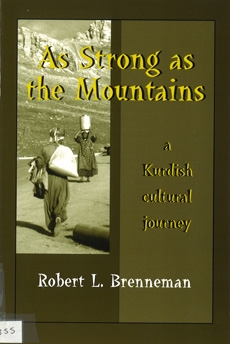
As Strong as the Mountains
Robert L. Brenneman
Waveland Press
Robert Brenneman provides a razor-sharp awareness of the Kurds’ roots in the Middle East as well as their massive urban migration and the resulting cultural upheaval. Based on long-term research, this richly layered ethnography takes readers on a journey from the mountains of Ararat, the alleged resting place of Noah’s Ark, to urban environments in a megalopolis like Istanbul, Turkey. Brenneman, who lived among the Kurds in both Iraq and Turkey, conducted fieldwork in such places as refugee camps, destroyed mountain villages, and tea gardens in Istanbul. He examines core and changing aspects of Kurdish culture, including human rights, ethnic identity, women’s roles, family and community, religious practices, and the transition from oral tradition to literacy.
In addition to providing insight into the worldview of the Kurdish people from antiquities to current events, the author points to key lessons that can be drawn from the ongoing dilemmas they face.
Robert L. Brenneman (Ph.D. University of Minnesota) lived with his family in the Middle East, particularly among the Kurds in 1983-1996 and continues to travel to the region every year. He teaches at North Central University in Minneapolis, Minnesota.
| 